Joan Laporta has moved to clarify the temperature around the European Super League debate, saying he already spoke with Florentino Perez and laid out Barcelona’s position. The comment feels like a deliberate cooling of speculation over a new rupture between the Clasico giants on governance reform. It comes as clubs across Europe reassess media rights, calendar congestion and revenue models. While Real Madrid remain the most vocal backers of alternative competition formats, Barcelona’s stance appears pragmatic: keeping channels open without grandstanding. For now, this sounds less like a power play and more like a reset of tone between two powerful presidents.
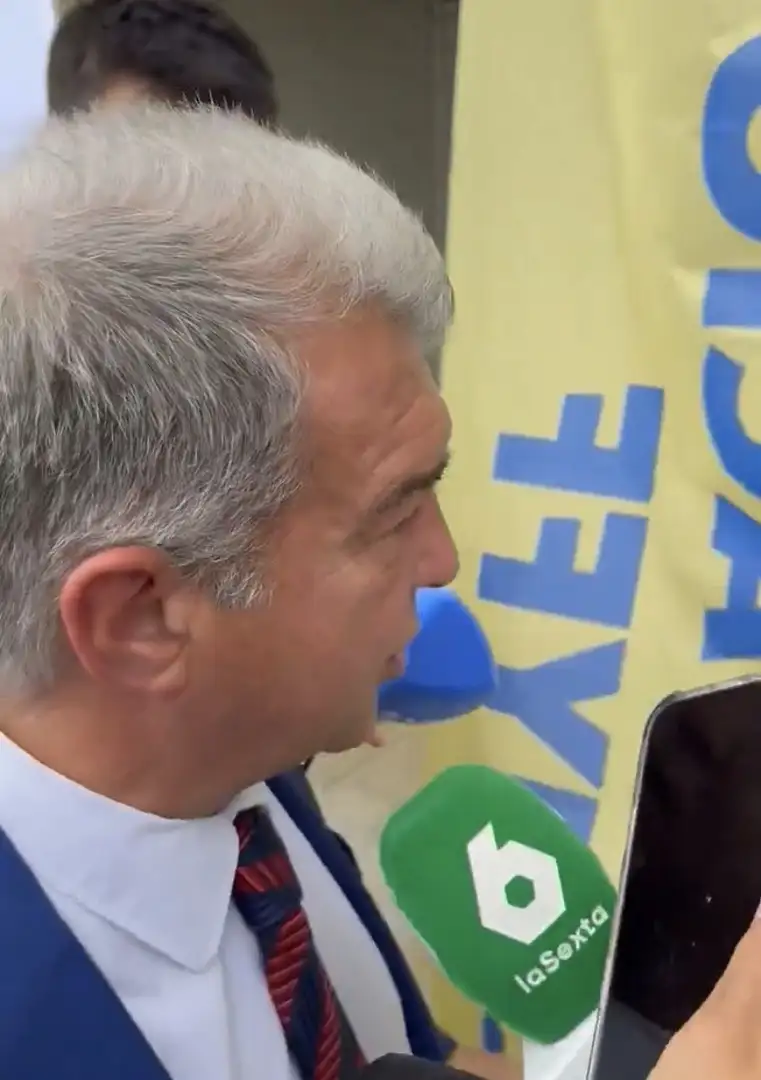
During a brief media availability in Barcelona this week, club president Joan Laporta was asked about his counterpart Florentino Perez and the European Super League. He replied that he had already spoken with them at the time, explaining Barcelona’s position. The remark arrives amid ongoing discussions across European football about competition reform, commercial revenues, and the balance of power between leagues, clubs, and governing bodies.
🚨 Joan Laporta on Florentino Pérez and the Super League: "I already spoke with them at the time, explaining Barça’s position."
@BarcaUniversal
Impact Analysis
Laporta’s remark signals a measured recalibration rather than an escalation. By stating that he has already explained Barcelona’s stance to Perez, the Barca president places the discussion on record as ongoing but not antagonistic. Strategically, this keeps Barca’s options open in a post-2023 legal landscape where the EU court criticized UEFA’s authorization framework without greenlighting any specific breakaway competition. In practical terms, Barca must balance financial recovery, fan sentiment, and political relations within La Liga and UEFA. An overly aggressive posture could alienate domestic partners and sponsors; an overly passive one risks ceding leverage to rivals.
For Real Madrid, Perez remains the standard-bearer for reform, but the absence of a broad coalition limits immediate traction. Laporta’s calibrated tone reduces the likelihood of a public standoff that could spook commercial stakeholders or trigger league-level backlash. It may also help Barcelona maintain a collaborative channel with UEFA on issues like calendar optimization and revenue distribution, while still engaging with reformist ideas that could improve long-term club economics.
In the short term, expect little structural change—dialogue over disruption. Medium-term, Barcelona can use this stance to negotiate better commercial conditions within existing frameworks and evaluate any new proposals on merit. The key impact is reputational: projecting Barca as pragmatic and solution-oriented while avoiding the optics of being dragged by Madrid’s agenda.
Reaction
Online fanbases reacted in predictably polarized fashion. A segment of Barca supporters read Laporta’s line as a tidy de-escalation—proof that he can defend Barcelona’s interests without turning every governance discussion into a public brawl. Others, however, mocked the episode with memes and laughter emojis, framing the moment as more theater than substance. Some Madrid-leaning voices claimed Barcelona is indecisive, while a subset of Barca fans accused Laporta of being too cozy with his rival counterpart.
There were digs aimed at both presidents, with a few users joking about how certain legends might respond, while others questioned the “obsession” around the Super League topic itself. The tone ranged from lighthearted banter to sharp jibes: a portion of commenters portrayed Perez as aggrieved; another contingent painted Laporta as overly diplomatic or even opportunistic. What’s notable is how quickly the discussion shifted from policy to personalities—fans compared leadership styles, legacy, and perceived influence in European corridors of power.
Overall, sentiment split roughly three ways: those relieved by a calmer tone, those craving firmer anti-ESL rhetoric, and those who still endorse radical reform. The discourse underscores how the Super League remains a lightning rod—less about the technicalities of governance and more about identity, pride, and who is seen to be leading the European game.
Social reactions
1/ We are in an undeclared state of emergency. America's adversaries are circling, and the American industrial base that dominated the 20th century is dormant. For the CCP, it is not enough for China to prosper... America must fall. It's time to Mobilize. Coming March 2026.
Shyam Sankar (@ssankar)
Now only real Madrid get milions. If this start. Yessss Even if collaborate with UCL. Which is already. On Then Madrid will surely get 200-300M at least as gift What a newssss.
utltrasur (@CeThakur)
"Laporta clearly communicated Barça’s stance to Pérez regarding Super League."
Hasnain Rajper 2.0⚡️ (@Hasnain2Hustle)
Prediction
Short term, the most likely scenario is continued behind-the-scenes dialogue. Barcelona will keep a watching brief: neither pledging unconditional support to any breakaway format nor slamming the door on reform initiatives. Expect Laporta to prioritize financial stabilization and competitive balance, leveraging his relationship with multiple stakeholders to extract incremental gains on media, scheduling, and revenue sharing.
Medium term, should a refreshed competition model emerge with credible broadcast partners and a governance framework that addresses sporting merit and solidarity, Barcelona could evaluate participation pragmatically. However, broad club buy-in across Europe remains the key variable; without it, any project struggles for legitimacy. Real Madrid will continue to champion reform, but a coalition wider than a handful of elite clubs is essential.
Longer term, the direction of travel points toward hybrid solutions: enhanced Champions League commercialization, expanded club-driven media rights packaging, and stricter financial sustainability rules. Laporta’s statement suggests Barca aims to shape that future from within the current ecosystem while reserving the right to pivot if a truly transformative, widely supported proposal emerges. Expect more diplomacy than drama, unless external shocks force accelerated change.
Latest today
- Manchester United eye Manu Koné for summer 2026 - a made-to-measure fit for Amorim's midfi...
- Ruben Amorim aligns with Jason Wilcox as Man United sharpen January transfer plan
- Ruben Amorim on 3-4-3: identity first - what it means for Manchester United and player rol...
- Amorim flags United injury crisis - Bruno, Mainoo, De Ligt, Maguire and Mount doubtful
Conclusion
Laporta’s comment functions as a pressure valve in a debate that often overheats. By reaffirming that Barcelona’s position has already been communicated to Perez, he sidelines the personality contest and reframes the conversation around policy and pragmatism. It’s a calculated posture: Barcelona preserves influence with reform advocates and maintains working relationships across La Liga and UEFA. That dual-track approach maximizes optionality in a fluid regulatory and commercial environment.
For supporters, the signal is stability over spectacle. The Super League remains an idea in search of a coalition; until that coalition materializes with robust sporting and financial safeguards, the path of least resistance is constructive engagement with existing structures. Real Madrid will keep pushing modernization narratives, and Barcelona will keep listening—on their own terms. In the meantime, incremental wins—commercial partnerships, sustainable squad planning, and transparent governance—will matter more than headline-grabbing declarations. The story is far from over, but today’s chapter is about tone, timing, and tactical patience.







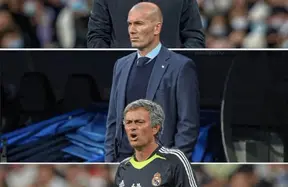
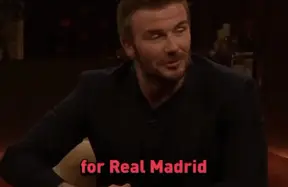
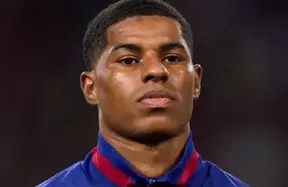
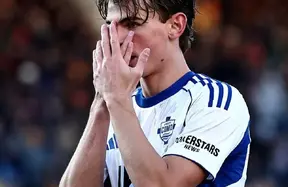
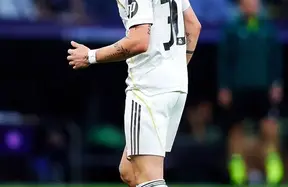
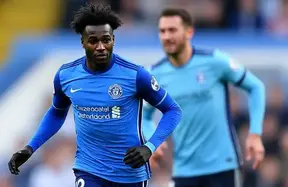
Madrid Mandem
Judas
Shyam Sankar
1/ We are in an undeclared state of emergency. America's adversaries are circling, and the American industrial base that dominated the 20th century is dormant. For the CCP, it is not enough for China to prosper... America must fall. It's time to Mobilize. Coming March 2026.
utltrasur
Now only real Madrid get milions. If this start. Yessss Even if collaborate with UCL. Which is already. On Then Madrid will surely get 200-300M at least as gift What a newssss.
Hasnain Rajper 2.0⚡️
"Laporta clearly communicated Barça’s stance to Pérez regarding Super League."
BlaqHakinz
What's the replies
Damian🦅
The idea is not good
FC Barça Reloaded
Don’t let Messi see this 😂😂😂😂😂😂😂😂😂
Dro
Fatporta snaked Florentino 😭
Attitude
What's with the obsession
Godee ♧
Laporta can never be like perez
Bokz
Papa Perez crying in his car
The Combat Sport Poll Guy
Ty for this
Centenarius Nutrition
When we launched our magnesium this month it had to give both Brain & Body benefit. We did this by blending two patented forms of Magnesium; the only* one that crosses the blood brain barrier and one that is fully chelated, bonded to an amino acid enhancing absorption.